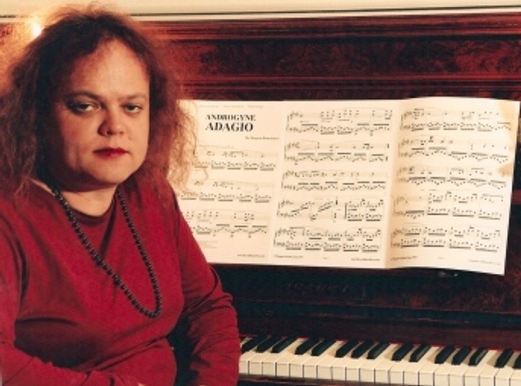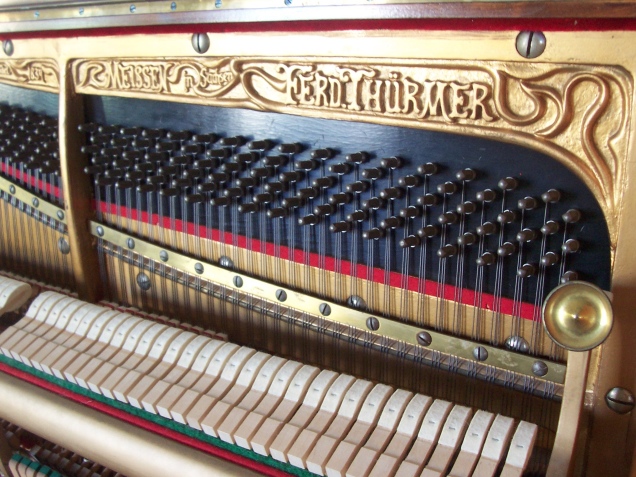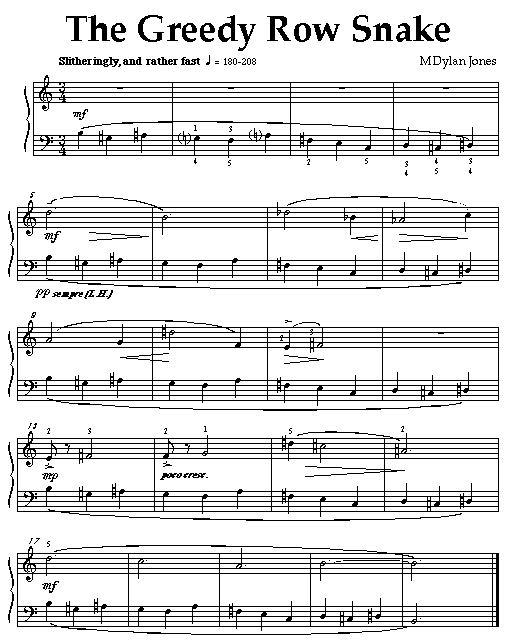
Online Piano Resources
Professional Services
All about Margaret
My sites
PIANO PAGES HOME
SINGING SITE HOME
RESOURCE REVIEWS HOME
Combined Entry Portal
Combined Sites List
Mix Margaret Dylan Jones
W.A. composer, pianist,
teacher, article writer, lyricist
Piano Lessons
Are you looking for a highly skilled and experienced piano teacher? One with musicality, enthusiasm and excellent communication skills? If you are, then please read on.
I offer lessons to beginners, intermediate and advanced students, aged 8 to 108, including adult starters or re-starters. Adults may have regular lessons or occasional consultations, though children really need regular weekly lessons. (Teaching very young students under 8 is a specialisation I haven't developed.)
I've been teaching since 1981 and often use my own, specially-made teaching materials, particularly for beginners and intermediate students. And I frequently give lessons using unfamiliar materials brought to lessons by students, materials I've never seen previously. This can be a lot of fun for both myself and the student.
My teaching style is eclectic; that is, I use elements of many different teaching methods and approaches. Quite separately to my Bachelor of Music Degree, in 1986 and 1993-94 I did formal music education studies at university. From this and other informal studies I learnt about the methods of Yamaha, Suzuki, Kodaly, Hoermann, Brandman and many others.
While we're on the subject of methods, exactly which books a teacher uses is not as important as how they use them. So, please bring your current or old piano books to the first lesson and I will see if we can use those books, possibly in a new way.
For many years I've taught piano to a very wide range of students. I teach mainly classical piano, but some of the young children or beginner adults play original music in rock, pop, and blues styles composed by the Bastien couple or Christopher Norton. And sometimes they play my own (classical) publications, especially my educational music.
I have studied three or four completely different styles of piano technique (you know, bent fingers, open fingers, totally straight fingers, use of weight etc etc), and have had seven piano teachers. The first two years of my university degree were in piano studies. My formal qualifications mainly relate to piano, theory, and composition, and the teaching of these.
Materials Used
Please note in regard to the use of materials: 1) I can't say in advance exactly which, if any, new books you'll need; 2) if I purchase them for you the cost will be put on the subsequent month's account.
Some of materials I find useful for the early studies are:
Students don't need to have this many books, of course. But these are the sorts of things I use most often.
- Bastien: Pop Piano Styles, Sonatinas, Notespeller, and other titles
- Christopher Norton: Micro Jazz, and other titles
- John Thomson: Note Speller, Scale Speller, Chord Speller
- Dulcie Holland: Master Your Theory
- Diller and Quail: Pedal Studies
- Joan Last: Freedom Technique
- Piano Dexterity for Beginners (a big improvement on Hanon Finger Exercises)
- Jump Right Ins: piano starters and re-starters (fun pieces focused on co-ordination)
Good resources for the intermediate levels:
Students at the higher levels have a wide range of repertoire, depending on the student's interests. Some of the more likely:
- Higher level books of Bastien, Norton, Holland, Diller and Quail, Last
- The Joy of Bach
- The Joy of Classics
- Bach: Inventions
- Clementi: Sonatinas
- Bartok: Mikrokosmos (a few selections)
- Grieg: Lyric Pieces
- Exam repertoire from the grade books
- Colourfast Piano Music (grade one)
- Scenes from Gorillahood (grades 3-5)
- Studies (Etudes) by Bertini, Heller, Le Couppey, Burgmüller, Duvernoy
- ColourKey Piano Technique
- Brahms: 51 Exercises (but not all 51!)
- Dohnanyi: Essential Finger Exercises
Actually, I don't teach the works by Roger Smalley and Stephen Benfall. I used to publish them (and I love hearing other people play them).
- Bach: Preludes & Fugues, Little Preludes, suites
- Mozart and Haydn: sonata movements
- Beethoven: sonata movements
- Brahms: late piano miniatures
- Debussy: easier pieces and studies
- Ravel: minuets
- Shostakovich, Kabalevsky, other Russians
- Albeniz: Espana (a few selections)
- Margaret D. Jones: Sonatina
- Smalley: Barcarolle (advanced); Variations on a Theme of Chopin (very advanced)
- Benfall: Hammers (very advanced)
- Chopin: Preludes, Studies
- Brahms and Dohnanyi exercises
- Exam repertoire
Learning with a Keyboard or Electric Piano
I used to be dead-set against teaching anyone to play the piano who didn't have access to a real piano. But then I had several students do so well with electric instruments that my attitude has changed.
I took on a few people with keyboards or electric pianos because they seemed keen. In one case I correctly guessed that money was so tight that a cheap keyboard was the only answer, and the parent's dedication and the young man's interest overcame my usual reluctance. He was one of my best students.
So, if YOU have an electric instrument, give me a call. Contact me if you would like lessons for yourself or your children.
Since May 2011 I've been living in the Perth hills, in the Shire of Mundaring, Western Australia. Click on the links to learn more.
Mobile phone: 0414 374 701 (new from September 2010).
Email: m, followed by the ‘at’ symbol, followed by: mixmargaret.com (there is no ‘au’).

